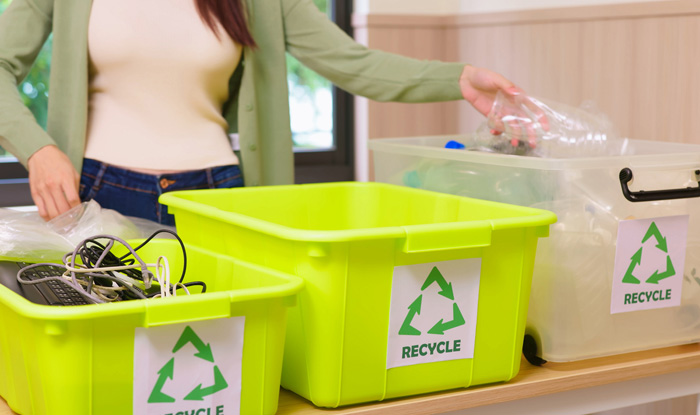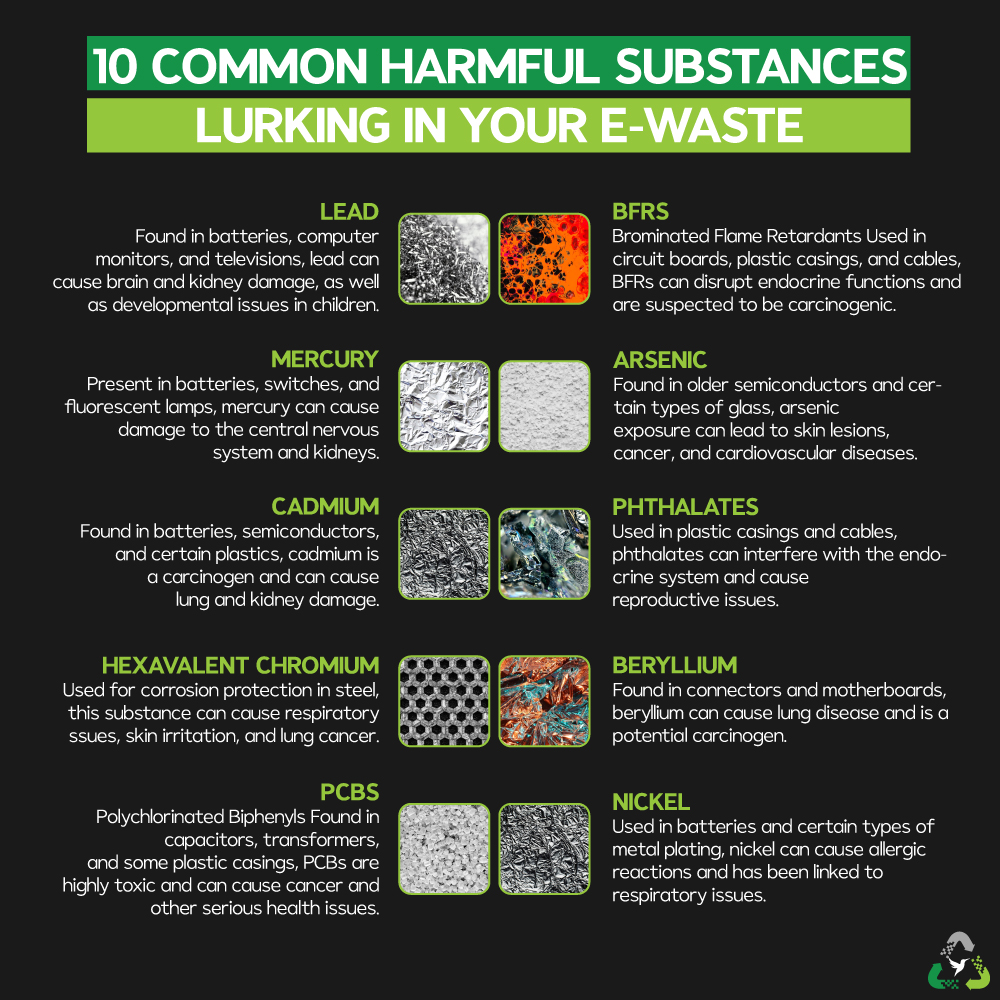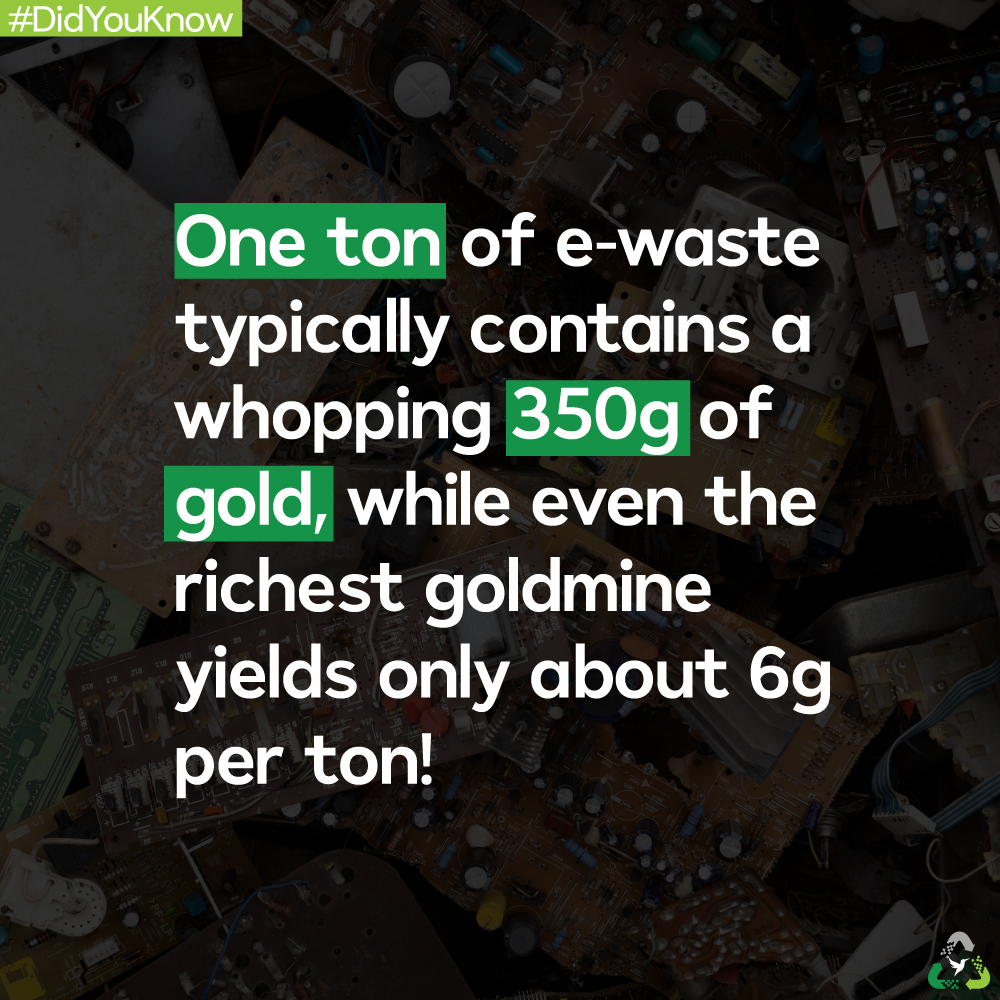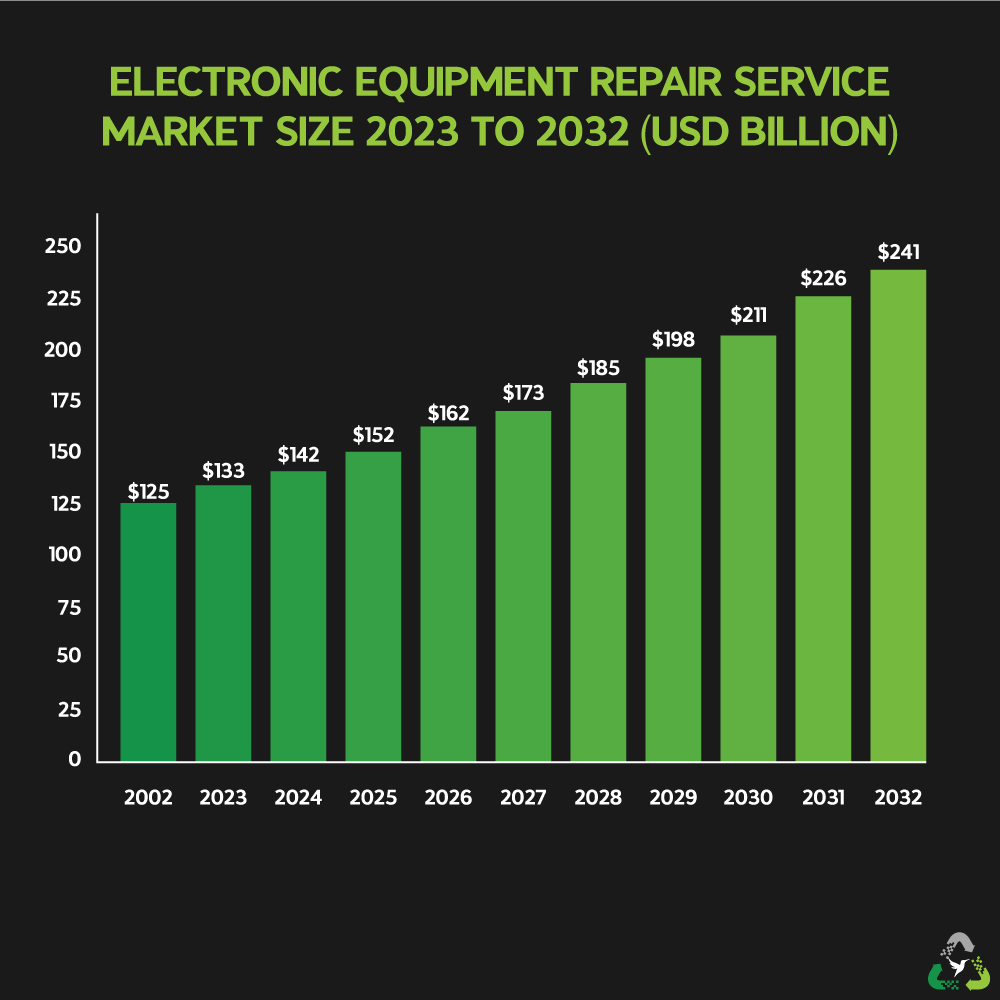Top 10 Reasons to Recycle Your E-Waste

Photo Credit: iStockPhoto/PonyWang
Do you recycle your e-waste? Here are the top 10 reasons why e-waste recycling is one of the best things for your community, economy, and the planet.
What do you do with old electronics you no longer use or need?
The World Counts — a socio-environmental awareness project — estimates that most people throw away their old gadgets and electronics. As per their e-waste data, we throw away around 800 laptops every second.
That’s an incredible amount of toxic waste we dump into our landfills. It pollutes the environment, poisoning our soil, air, and water resources. It damages human health in communities near these landfill sites (a common reality in the developing world where we export most of our e-waste) that drink that water, breathe that air, and grow food in that soil.
But worst of all, ceaseless electronics manufacturing and consumerism support the worst form of human exploitation in countries like the Democratic Republic of Congo, where most of our standard electronics metals and minerals are mined from.
All of this speaks of a broken system but this broken system can be fixed. Research has shown that electronics recycling holds the key to the solution. Responsible e-waste recycling directly connects with healthier communities and sustainable economies while accelerating technological advances.
Below are ten key advantages of making e-waste recycling a critical part of our electronics consumption.
1. It prevents the environment from toxic materials
Our favorite tech gadgets are made of some of the most harmful substances on earth. Lead, mercury, and cadmium, to name a few. These substances create catastrophic ecological contamination when discarded electronics are thrown into landfills and harmful toxins are released into the environment.
Responsible e-waste recycling prevents that from happening.
Professional electronics recyclers extract these hazardous materials from discarded e-waste and sell it back to manufacturers for later use. Manufacturers use them to make new tech units without mining them anew from conflicted areas. Thus, saving the world from more than one kind of toxicity.
2. It reduces the need for virgin mining
Virgin mining refers to mining valuable raw materials from their primary source. For most tech gadgets, these primary sources include mines in countries like the Democratic Republic of Congo,
Rwanda, and surrounding areas. DRC is the most heavily abused country in terms of virgin resource mining. Extreme forms of human rights violations take place when local miners go to work to mine cobalt, tin, and gold for our smartphones and laptops.
Ethical e-waste recycling rejects virgin mining for electronics manufacturing. And there’s a case for it.
We don’t need to go to conflict areas and worsen conditions for local populations to get the newest iPhone. We already have all the gold, cobalt, and tin we need in our e-waste. Did you know that one ton of e-waste typically contains 350g of gold while an actual goldmine can only give us 6g at the max per ton?
With these extreme levels of efficiency, virgin mining is quickly becoming obsolete. Insisting upon regular e-waste recycling, we can improve these statistics even more.
3. It reduces carbon footprint and slows down climate change
Rising e-waste is directly tied to climate change. Whether we burn electronic waste or deposit it into landfills, it ultimately releases harmful toxins into the environment, damaging the planet. Greenhouse gas emissions rise with e-waste incinerations, contributing to global warming.
Careless consumerism is also a culprit here. The more tech gadgets we buy and discard, the more impact we make on the environment, none of it good.
Responsible electronics recycling forces us to reconsider our electronics consumption and waste. When we buy with care, we use with care, and dispose of with care. Thus, creating a culture of consciousness around tech consumption.
4. It creates jobs and secondary markets
The electronics repair market is a growing industry and a strong trend in e-waste recycling future. Estimates suggest a nearly 7% increase in its market size from 2023 to 2032, taking the market from USD 125 billion to USD 241.79 billion.
That is a lot of jobs in the next ten years if we all vow to recycle our electronics waste responsibly.
But consumer-facing electronics recycling isn’t the only factor we need. Manufacturers have to play their part. Their planned culture of obsolescence must be replaced with something more sustainable. Extended producer responsibility frameworks and circular economy models must be explored and implemented at scale to ensure lasting success.
5. It improves cybersecurity for consumers and businesses
Whenever we carelessly dump an unwanted electronic item in the trash, we trigger cybersecurity breaches and damages.
Savvy hackers can get into discarded hard drives, laptops, smartphones, and other gadgets. If you are a business, casual dumping of office electronics spells an even greater disaster for you. The practice not only exposes you to hacker attacks but also puts your reputation on the line — along with your customers’ data!
Put all these concerns to rest by exercising strict electronics recycling at your workplace and personal life. Whenever you upgrade your IT infrastructure, consult a professional ITAD company to manage your outgoing electronics. These experts are trained in cybersecurity protocols and ensure your old IT systems are wiped out of all sensitive data before they are put to rest and sent for recycling.
6. It keeps compliance with e-waste laws
Twenty-five states in the US have established laws to manage proper e-waste recycling. According to these laws, covered electronics must not be discarded with the rest of household or commercial trash. Instead, the e-waste must be transported to designated recycling sites to be properly recycled. Commercial recycling companies can also be consulted to manage household or commercial electronics waste.
Whether a citizen or business, e-waste recycling helps you comply with these laws. While citizens may only have to worry about fines and penalties, businesses must contend with reputational risks too.
Avoid these potential pitfalls by adopting legal e-waste recycling solutions. Talk to a local commercial e-waste recycling company to learn how.
7. It bridges the digital divide
Environmental benefits are a great pull for e-waste recycling but don’t forget the immense good it does for reducing the digital divide too.
The digital divide refers to the schism between those with instant access to digital products and technology and those without. Electronic recycling bridges this gap by bringing donated, refurbished, and repaired goods back into circulation, and making it possible for those who can’t afford expensive new gadgets to buy computers, laptops, smartphones, and more.
It also makes new tech items cheaper to manufacture. With more repaired and donated electronics in the market, companies lose the incentive to charge more for new units. Plus, if we make new units with repurposed raw materials, the cost automatically reduces, further slashing the prices of brand-new electronics.
8. It supports the EPR model
Big tech companies have created the menace of electronic waste that threatens to drown the planet under its piles now.
The EPR model or the framework of extended producer responsibility puts the burden of making long-lasting electronic goods and recycling them properly back on manufacturers. It holds them accountable for their role in deliberately creating products that cannot endure for more than a few years without requiring constant updates and upgrades.
By normalizing e-waste recycling, EPR models can become mainstream. These models require electronics manufacturers to establish proper systems of recycling where end-of-life and end-of-use electronic goods can be properly sorted and recycled without causing customers to look for these services on their own.
9. It facilitates the circular economy model
Everything we have discussed in the post leads us to the circular economy model. This model proposes establishing commercial and consumer practices focused on reducing, repairing, and reusing.
When practicing circular economy, stuff isn’t thrown out just because. It’s donated or given as a gift. It’s also repaired repeatedly and repurposed to fulfill secondary uses. It includes everything from rethinking our consumer choices to reducing waste, and managing that waste to extract as much value from it as possible.
Electronics recycling is deeply entrenched in a circular economy model. One ultimately leads to the other so if we become serious about re-waste recycling, we can eventually make sustainability the most profitable way to run the world economy.
10. It encourages conscious consumerism and awareness
As more people begin recycling their electronics regularly, it creates a ripple effect. More people see it happening, they become interested in learning more about it, and some ultimately become avid recyclers.
Recycling our electronics also forces us to consider all the aspects of their sourcing, making, and supply chain. When we know about tainted minerals that go into our latest smartphones and laptops, we may think twice about throwing a unit away the minute it suffers a few scratches. When we learn that creating a laptop requires 190,000 liters of water, we may feel more protective of it and consider extending its use beyond the typical three years.
Making e-waste recycling a part of our regular tech makes us more conscious of our consumer choices and, in turn, forces manufacturers to perform sustainably too.
We offer free e-waste pickups to simplify e-recycling
We have been in the e-waste recycling business long enough to know that one of the major reasons people feel burdened by recycling is it is burdensome. There are only so many free hours in the day and we can’t expect consumers to use that free time looking for e-waste drop-off locations.
That’s why we have introduced free e-waste pickups in all our service locations including Pennsylvania, Texas, New York, and New Jersey. If you have e-waste recycling needs, whether residential or commercial, in these areas, give us a call — 888-392-7839 — and we’ll be there to collect your e-waste safely for recycling.
About The Author Kelly Sampson
Kelly Sampson is a writer, blogger, and environmental enthusiast. She has strong opinions about climate change, the dogs vs. cats debate, and Oxford commas. She has lent Hummingbird International her engaging and spirited voice and turned our blog into a great place to find valuable information about e-waste, e-waste recycling, and the ITAD industry. Explore our blog to read more of her work.










